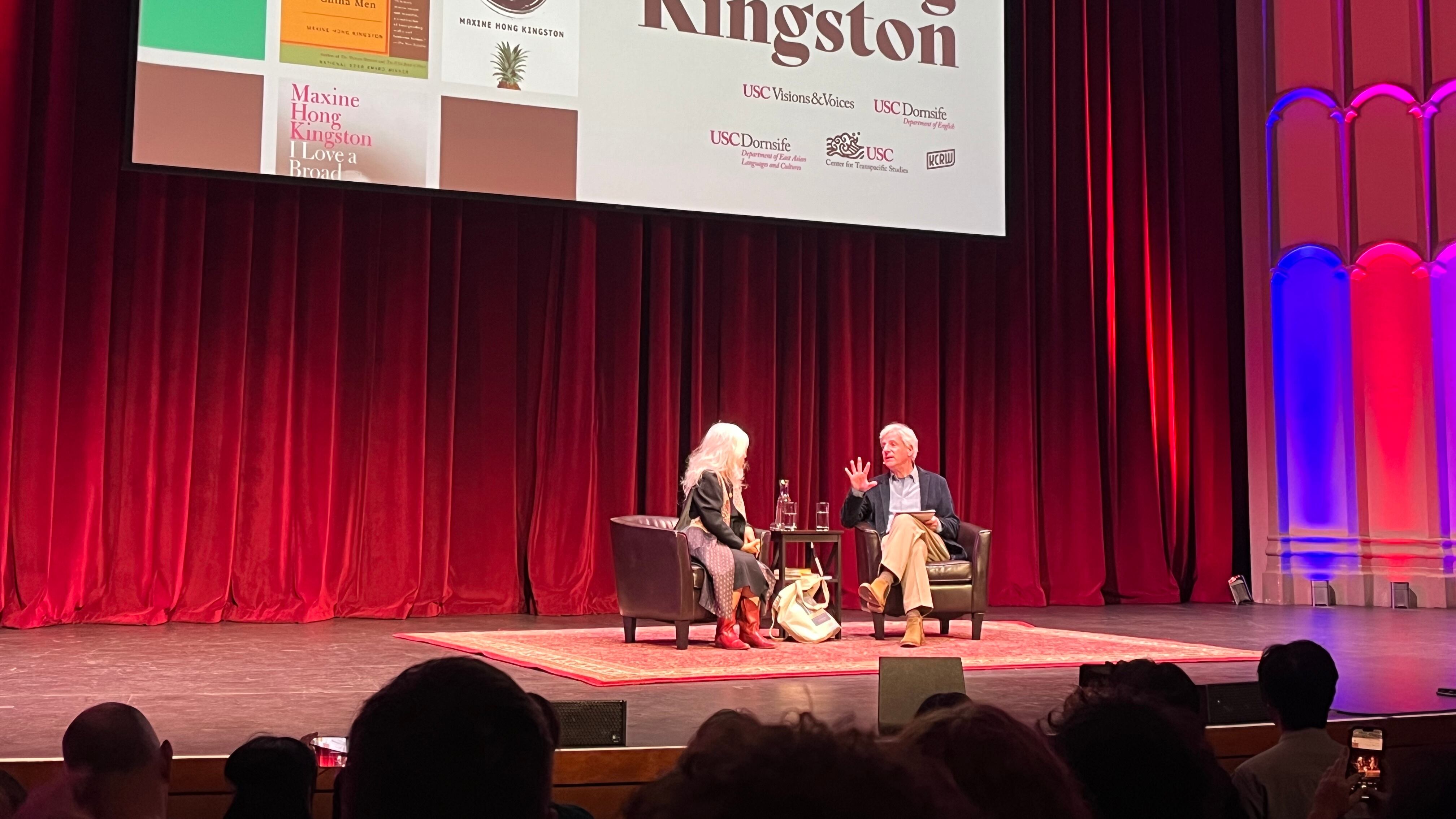On Monday, Maxine Hong Kingston, an award-winning writer best known for her book “The Woman Warrior: Memoirs of a Girlhood Among Ghosts,” was joined by USC professor and author David Ulin in a conversation about her writing journey throughout the creation of her stories up until now.
Kingston’s books have gained popularity over the years due to her ability to blur the lines between fiction and nonfiction in her stories. In addition to this, her contemporary novels showcase the representation of the Chinese American perspective.
From die-hard fans to new readers, Bovard Auditorium was filled with USC students, professors and others who were ready to hear Kingston’s writing insights.
“What I would want is for the reader to get the same feelings or have the same vision that I have,” Kingston said during the panel. “To do that in words is…it takes technical skill. When I started teaching writing, all of a sudden I understood that there’s such a thing as private writing and there’s public writing.”
Kingston dug deeper into the differences between public and private writing, including how the line between the two tends to blur when it comes to herself.
“In these writing classes, I know that everybody has started writing a diary at some time and I would tell them don’t do diary [private] writing in this class,” Kingston said. “That’s something I would tell the students, but then the border is just not strict in my writing.”
For Kingston, going through multiple drafts, especially for her book “China Men,” a historical fiction novel about the lives of three generations of Chinese men in America, is what led her to create something different.
“The way I see it is that the first draft you’re laying the footprint of your building and the second draft is the next story,” Kingston said. “The third draft and you go higher and higher and as you do each draft you know more, you understand more.”
Kingston talks more about her work with “China Men,” keeping the audience on their toes as she explains how everything fell into place after she went through multiple drafts.
“It felt like I was hearing a symphony when “China Men” came to me and I could hear the different waves of sound,” Kingston said. “When I’m teaching writing students I don’t want them to just sit around doing nothing and waiting for the muse. So, I tell them that everybody’s got a story and all you have to do is work. Write a little bit everyday and you’ll be fine.”
After years of writing, Kingston has always brought up the topic of possible retirement. But every time she tries, it tends to never work out the way she planned it to.
“It’s all sacrifice for the writing,” Kingston said. “The last few years I keep saying I’m retiring now, okay no more, but it keeps coming. So, I keep announcing I’m going to quit, but it won’t let me go.”
Kingston wrapped up the night with talks of her retirement and left the audience with an important piece of advice.
“If we listen to other people, it makes them feel good,” Kingston says. “It heals their wounds and also they tell really good stories. I think listening is a talent.”
